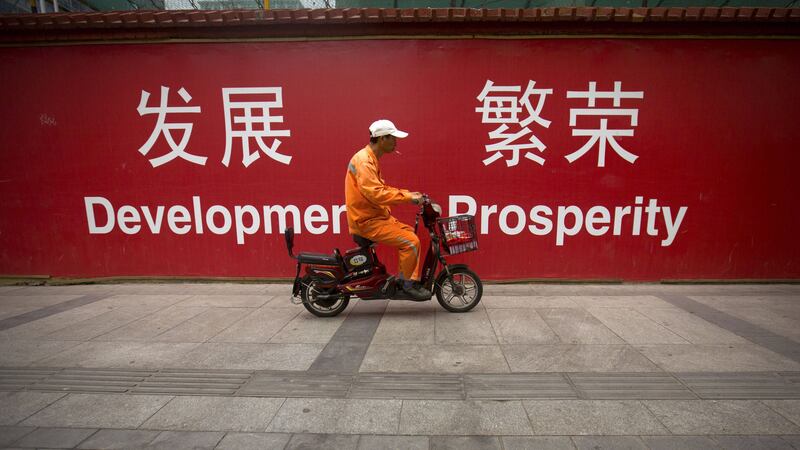WORLD markets fell yesterday as investors reacted to China's devaluation of its currency – a move that will hit firms trading with the world's second largest economy.
Burberry was one of the big fallers with shares down more than 4 per cent after the intervention in what is a key market for the luxury fashion group, while the wider FTSE 100 Index slid 71.7 points to 6664.5.
Germany's Dax was 2.6 per cent lower and France's Cac 40 was down 2 per cent as markets failed to take inspiration from signs that a bail-out agreement between debt-laden Greece and its creditors was on the verge of being finalised following all-night talks in Athens.
In New York the Dow Jones Industrial Average was almost 250 points down, in early trading.
Focus turned to China as it opted to devalue the yuan following figures this week showing a slump in trade. The strengthening of the currency had hit exports.
The devaluation will make goods bought from abroad in foreign currencies more expensive, forcing exporters in the UK, Europe or the US either to hike prices for Chinese customers or take a hit to their own profit margins.
With Burberry's business in China accounting for a large chunk of its revenues, shares fell 71p to 1536p.
On currency markets, the pound was little changed against the US dollar at just under 1.56 and down a cent against the euro at 1.41.
In London shares, insurance giant Prudential was the top riser on the FTSE 100 leaderboard after half-year results showed a better-than-expected 17 per cent rise in first-half operating profits to £1.88 billion, boosted by growth in Asia and the US.
Chief executive Mike Wells – unveiling results for the first time since he took over from Tidjane Thiam – also said the UK life business saw a strong performance despite "unprecedented" regulatory change. Shares rose almost 5 per cent, or 70.5p to 1577p.
Meanwhile, volatile mining stocks had a mixed session as China's devaluation sent investors into safe havens such as gold and silver. Fresnillo rose 3.5p to 65p while Randgold Resources added 21p to 3952p.
But elsewhere in the sector there were falls after analysts at Citigroup predicted BHP Billiton and Rio Tinto may have to cut spending further amid the broader slump in commodity prices.
BHP Billiton fell 60.5p at 1148.5p and Rio Tinto by 81.5p to 2553.5p.
In the FTSE 250 Index, troubled outsourcing giant Serco had a choppy session despite trading profits stripping out one-off items coming in slightly ahead of expectations at £46.9 million.
Chief executive Rupert Soames said: "This is a respectable start to what will be a long, and no doubt occasionally bumpy, road to recovery."
He said the group continued to expect revenues and profits to be under pressure next year. The stock initially turned higher but later drifted 1.5p lower to 124p.
The biggest risers on the FTSE 100 Index were Prudential up 70.5p at 1577p, Coca-Cola HBC up 20p at 1,344p, Inmarsat up 9.5p at 977p and ARM Holdings up 7.5p at 959.5p.
The biggest fallers on the FTSE 100 Index were Glemcore down 15p at 191p, BHP Billiton down 60.5p at 1148.5p, Burberry down 71p at 1536p and Anglo American down 33.6p at 774.8p.








